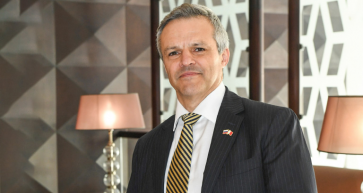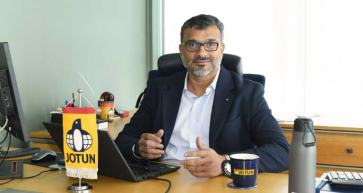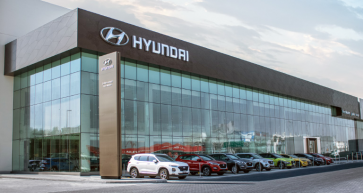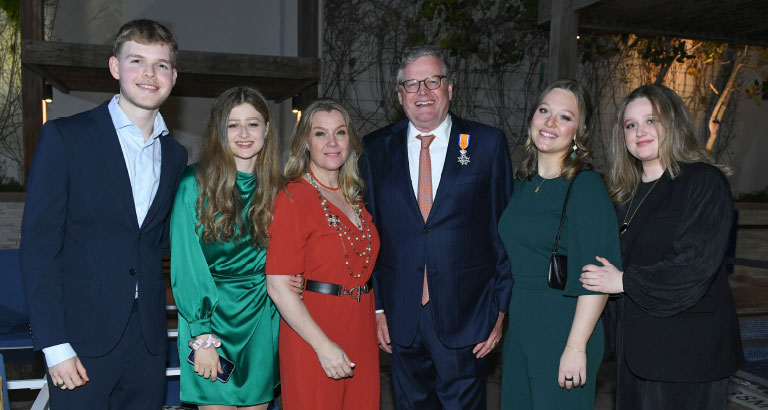
Jaap Vaandrager has been a prominent figure in the Middle East for the past 40 years, establishing a major hydraulics company and also previously serving as the Dutch Honorary Consul in Bahrain for almost a decade. For his services in the region and his contributions towards boosting trade relations, he received a Knighthood from the Netherlands last month which made him a Knight of the Order of Orange-Nassau.
Kristian Harrison sat down with him to discuss his pride at being granted this royal honour, his history in the region and his thoughts on raising a family as an expat.
Can you tell us about your background and how you ended up in the Middle East?
Firstly, I want to apologise to my parents because I believe I was not the best student that they would have wished for! I didn’t like going to school much; I had many other interests. I had a shop where I was doing airbrush painting, I was fixing motorcycles and I had an advertising company. Then I worked as a garbageologist … a glamorous way of saying I was picking up garbage on the back of a truck. Basically, if there was anything other than school, I was doing it.
Eventually, the garbage company decided I would be better served as a salesman than a garbage collector, so I became a sales executive as a better use of my skills than collecting on the back of the truck.
I then moved to another company, which wanted me to go to Saudi Arabia for a year. Now, I always thought this was my choice, but in the background, my father and the owner of the company in the Netherlands had formulated this plan to send me there, but made me think it was completely of my own free will!
When did you find out about this, and how did your career progress after that?
It wasn’t until 30 years later! I’m glad that it happened though, it was the best decision that I (never) made! In 1984, my father was manufacturing hydraulic cylinders in the Netherlands and he had some customers in Saudi. Since I was already working for a Dutch-Saudi joint venture, I thought it would be wise to help my father too. That’s really when I started to see the potential in Saudi Arabia.
I then started selling hydraulic cylinders for dump trucks, and by 1989, Dutch-made cylinders were the preferred choice for construction companies in the Middle East and I was starting to promote Dutch products and helping people who wanted access to the market. It was around this time that I realised it was just nice to connect people, which would eventually put me in good stead many years later to become Honorary Consul of the Netherlands in Bahrain.
As for MH Hydraulics Group BV, which is the umbrella company encompassing a number of brands, it continues to perform very strongly both regionally and internationally, with a presence in Germany, Italy, the UAE and Singapore. We’re extremely busy in the Netherlands too at the moment, with approximately 320 employees there. Thankfully I have a great management team which I can communicate with remotely from Bahrain, most of the time. Of course, I also want to ensure we continue to have a strong foundation in the Middle East, and Saudi Arabia in particular where we are starting to have a strong presence.
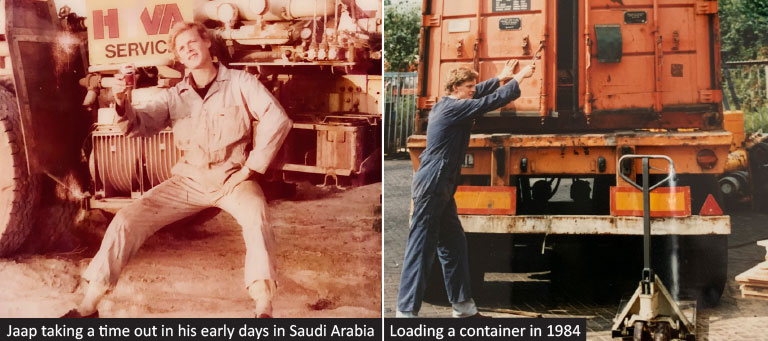 Can you explain a little about the Honorary Consul title and how it differs from an ambassadorship?
Can you explain a little about the Honorary Consul title and how it differs from an ambassadorship?
Essentially, there are two elements to an Honorary Consul’s work: assisting Dutch nationals abroad and representing Dutch trade interests. Since there is no Dutch embassy specifically for Bahrain (it is covered by the embassy in Kuwait), it’s a unique situation. The position is not political like an ambassadorship and is voluntary, but it is still by appointment from the King and consuls do have some diplomatic status.
Some of the tasks I assisted with included passport renewal, repatriation, registering babies and basically helping Dutch citizens with their troubles.
How proud were you to receive your Knighthood and how were you nominated for this honour?
I believe it was for my 40 years promoting Dutch and Middle East connections rather than my consular work, which I see as simply my duty. It was very emotional and one of the proudest days of my life. I didn’t do all of my work for recognition, but it’s nice to receive it and to be told that I’d gone above and beyond for my country.
Your family managed to surprise you at the ceremony; can you tell us about this?
Indeed! They were incredibly sneaky. In fact, the whole ceremony was kept under wraps and I was led to believe it was simply a meeting with the Dutch Ambassador and the Bahrain Netherlands Business Network. When I turned up at the hotel where the ceremony was being held, I saw a few of my friends and thought it was a little odd, but thought nothing more of it. However, when I entered the room and saw my wife Wendy and my four children Celine, 25, Charlotte, 23, Jacob and Willemijn, both 21, I knew that it was something special!
They all managed to keep the secret too. My children had only been in Bahrain a few weeks prior, yet they called me from the Netherlands asking if they could come back for one of their friends’ graduation. I did wonder why they couldn’t have celebrated it when they were here, but they were adamant. It’s nice to have the kids around, especially now that they’re older, so I’m glad I agreed to fly them out!
How did you meet your wife and what was your experience as expat parents raising children in the Middle East?
When I was 35, I started to get complaints from my friends that I was the only one not married, and then my father said I might start losing customers if I didn’t! I argued that Saudi Arabia is not the easiest place to find a wife, so what an incredible surprise that I found mine there! I was put in touch with Wendy, who was working with Gulf Air at the time, and we hit it off instantly. Three months later, on her birthday, I asked her to marry me. I thought it was a cheap birthday present as simply asking her was enough, but it turned out to be the most expensive present ever because she said yes and never regretted it.
As for our children, I think it’s a blessing that they were raised in a multicultural society and attended St Christopher’s School where they made friends with people from across the world, whereas if they were outside of that expat bubble and in a Dutch school, for example, they’d mainly just associate with Dutch people.
They’re all back in the Netherlands studying, with three of them studying for their Master’s degrees and one wrapping up her Bachelor degree. I was adamant that they should complete at least part of their education in the Netherlands to remember their roots.
Last thoughts?
I want to reiterate how honoured and grateful I am to receive the Knighthood, and also to be able to work and live in Bahrain and the Middle East. My father was in hydraulics, now I am also in hydraulics and I want to leave a legacy behind in this region. Whether my kids follow me into the business or not is up to them, but whatever they do I’ll be proud of them as long as they’re happy.

